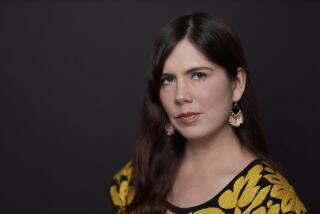Book review: ‘Savages’ by Don Winslow
I’m of two minds about whether “Savages,” Don Winslow’s marvelous, adrenaline-juiced roller coaster of a novel, is a rookie reader’s best introduction to his work. There’s a delicious sense of satisfaction in seeing how Winslow has chiseled his increasingly lean prose to diamond-like precision over the course of 12 novels and fused the themes of “The Power of the Dog” (2005), his epic account of the country’s never-ending war on drugs, with the razzmatazz syntax of his surf-detective novel “The Dawn Patrol” (2008) to produce something heady and new. “Savages” is both a departure and a culmination, pyrotechnic braggadocio and deep meditation on contemporary American culture.
All those reasons, however, justify foisting “Savages” into the hands of Winslow unfamiliars. The rationale — mine, anyway — is that if newcomers are sucked in by the fierce narrative velocity and perpetual peppering of aphorism upon biting aphorism, each will realize what Winslow fans have long known and will reach for the writer’s back catalog.
To get to that semi-ecstatic point, one must first pass Winslow’s cheeky intelligence test, a two-word opening chapter that cannot, alas, be repeated in a family newspaper. If you cackle out loud, you may proceed to Chapter 2. If not, you’re not “Savages’” ideal reader, and it’s no great loss.
Those who meet the novel’s brash standards will also meet the trio of twentysomethings who navigate the stylized nouveau terrain that is Orange County. From a distance the characters seem like cutouts: Ben, the do-gooder, the pacifist, the son of two psychiatrists with a yen to fix Third World countries with cash infusions; Chon, the stone-cold veteran of several tours of Iraq and Afghanistan with a permanent case of PTLOSD (“Post Traumatic Lack of Stress Disorder”); and O, the blue-streaked blond they both love and who loves both with equal verve, who shops constantly out of boredom and fends off advances from the latest husband of her fad-obsessed mother, nicknamed PAQU (“Passive Aggressive Queen of the Universe”).
Winslow buffs the surface to high gloss only to dirty things up pretty fast. Ben and Chon might be opposite in personality, but together they make millions producing chart-busting pot so potent that inhalation several degrees removed from the source produces serious contact highs. O may be an O.C. princess quick on the orgasmic draw but she’s just as quick to sum up the threat posed by the Baja cartel’s desire to scoop up all parts of the marijuana trade (“They’re like Wal-Mart”) and well aware that she takes the easy way out because she can. For the first third, “Savages” grooves with the backbeat of your favorite club mix, lulling the reader into languid submission such that the ménage à trois can’t possibly break apart.
And then comes the break point, when the cartel shows it does mean business, making O the victim of a snatch-and-grab from — where else? — the mall. From then on, the velocity cranks up ever faster but the party beat is long gone. Every near-cliché and lazy expectation Winslow sets up is then demolished, as women prove to be the primary aggressors, cartel thugs double as caring family men and Ben’s philanthropic illusions shatter as baser urges take over, to the point of surprising his normally more violent best friend.
The real break point Winslow describes, however, is the one between an all-too-American “religion of narcissism” and the inevitable implosion caused by outside forces. The drumbeat strikes a little loudly, but the impact of the late-act narrative soliloquy is no less damning: “We reinvented ourselves every day, remade our culture, locked ourselves in gated communities, we ate healthy food, we gave up smoking, we lifted our faces while avoiding the sun, we had our skin peeled, our lines removed, our fat sucked away like our unwanted babies, we defied aging and death.”
What, then, are we left with when we only have ourselves to worship? “Guys dying in Iraq and Afghanistan and the headlines are about Anna Nicole Smith. Who? Exactly.” The cultural references change but the juxtaposition never does. It’s easier to care about having a good time or justifying one’s behavior until you’re in a standoff and you’re not sure if your gun works. Or else, there’s Chon’s philosophy: He “has always known that there are two worlds: The savage/the less savage.” Or, put another way: “You can spend fifty thousand years practicing meditation or you can buy a gun.”
As worldviews go, “Savages” runs all the bleaker because we didn’t know it would end up that way. But all is not lost for Ben, Chon and O: Loving themselves is not enough, but each other, the world? That might be the real path toward enlightenment, not any others prescribed in O.C. territory.
Weinman’s “Dark Passages” column appears monthly at http://netblogpro.com/books.
More to Read
Sign up for our Book Club newsletter
Get the latest news, events and more from the Los Angeles Times Book Club, and help us get L.A. reading and talking.
You may occasionally receive promotional content from the Los Angeles Times.








